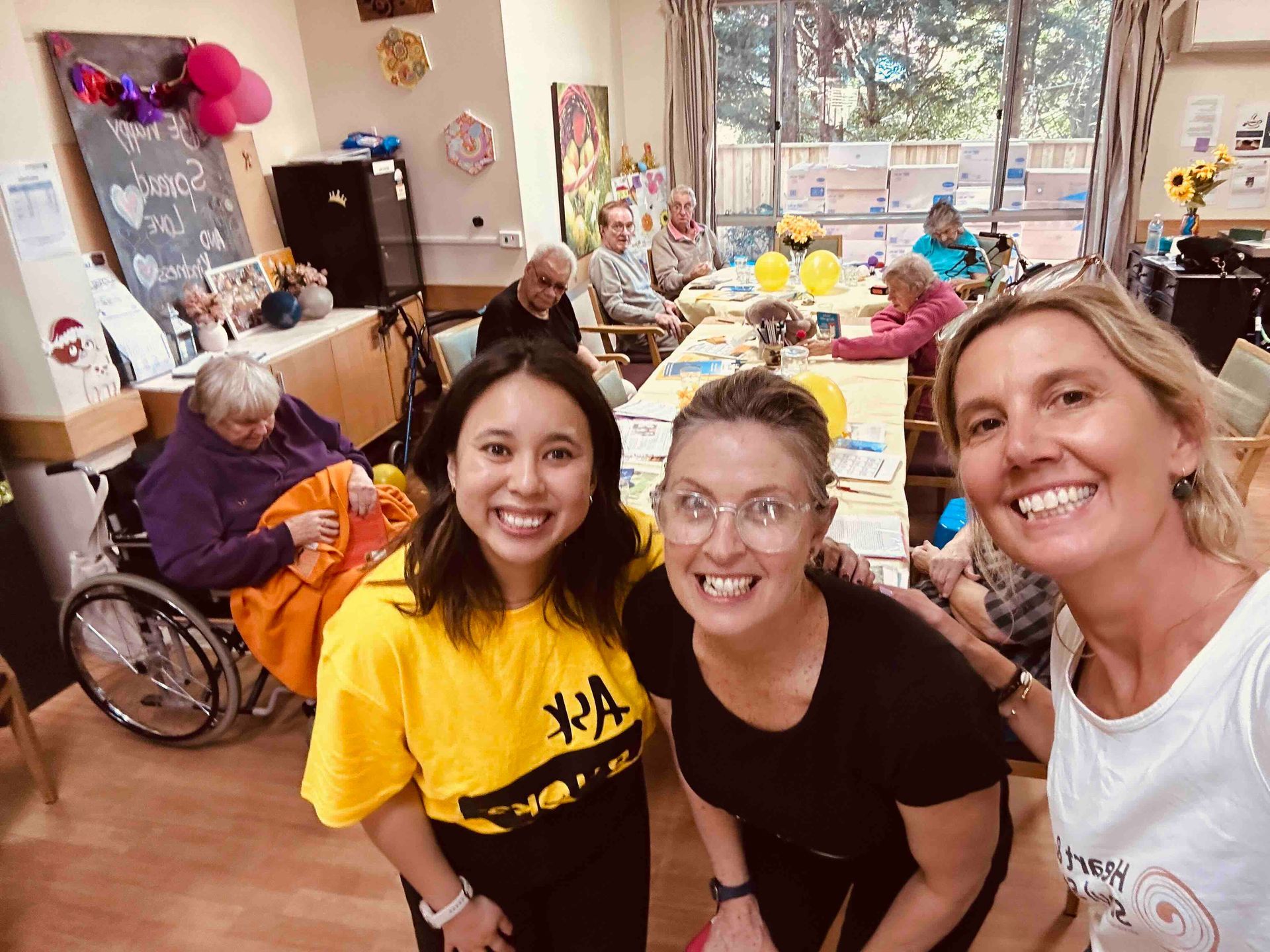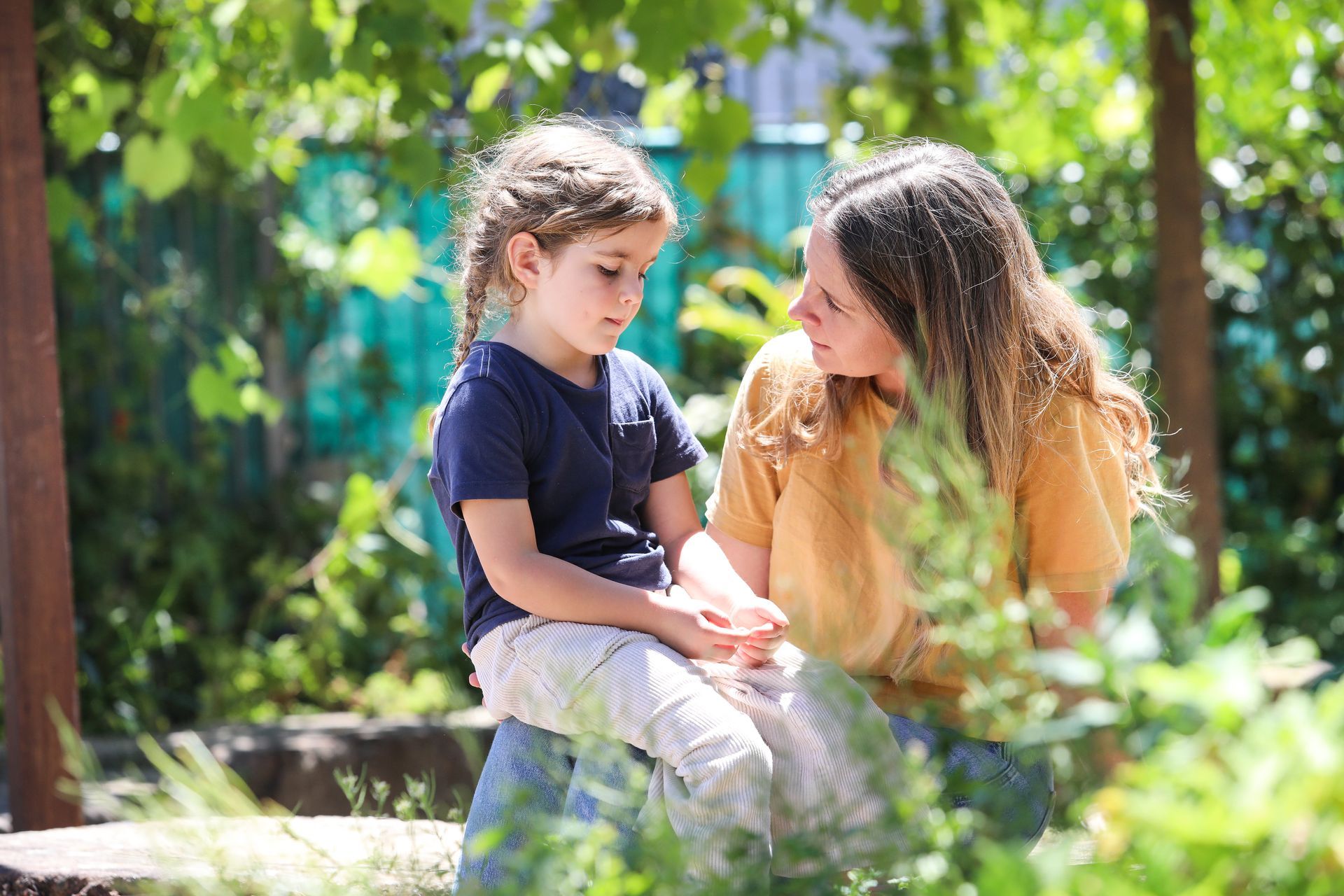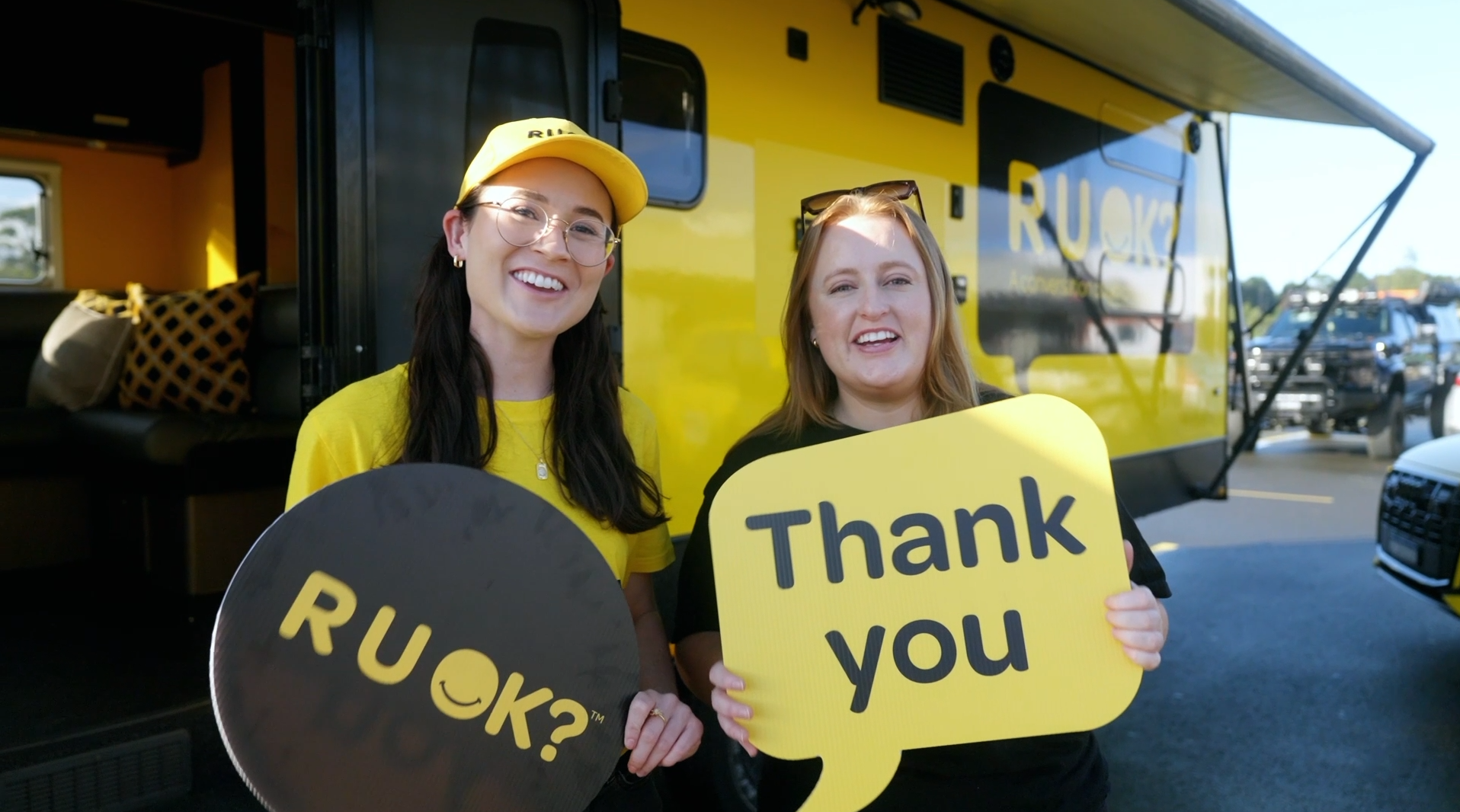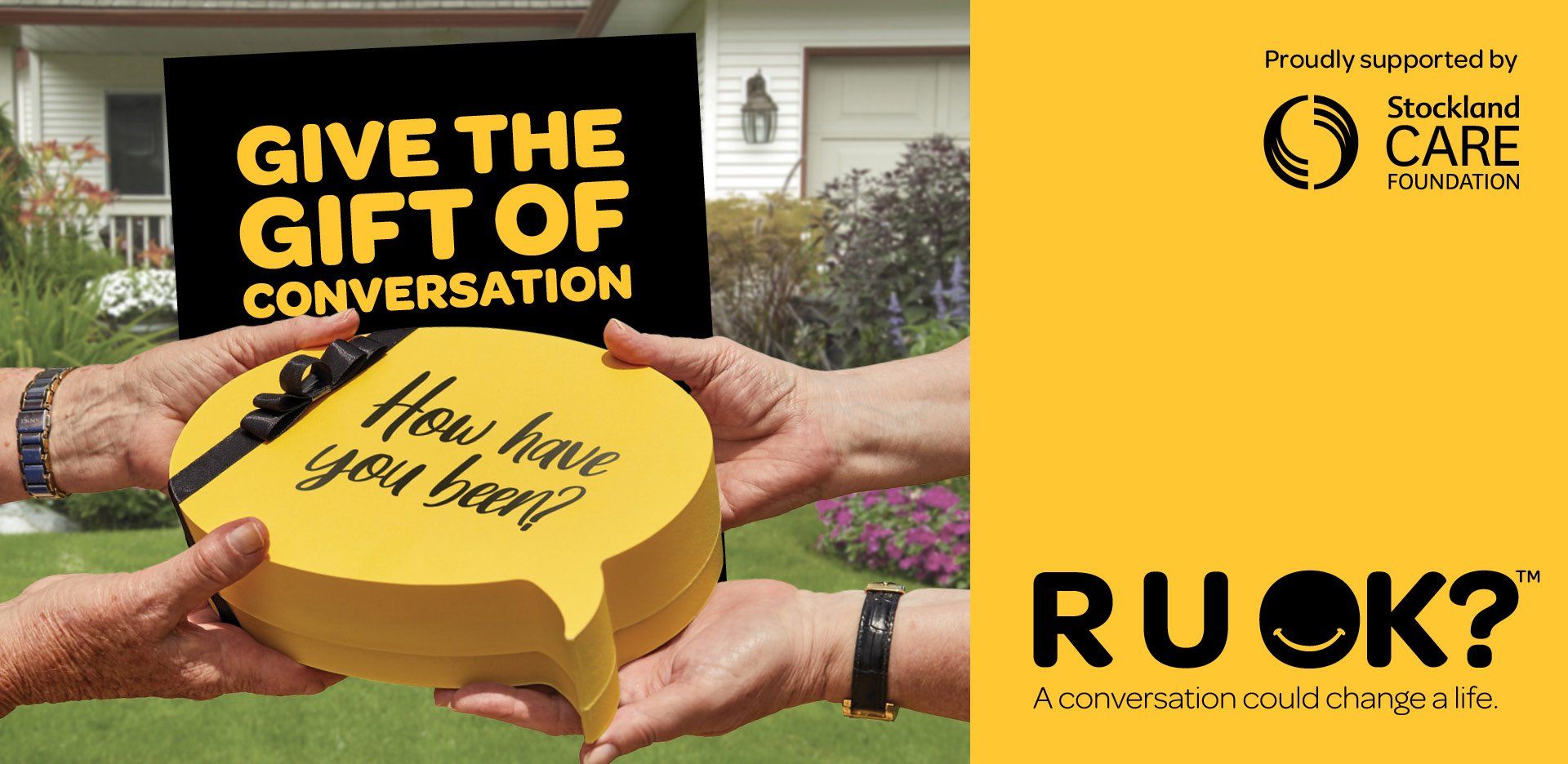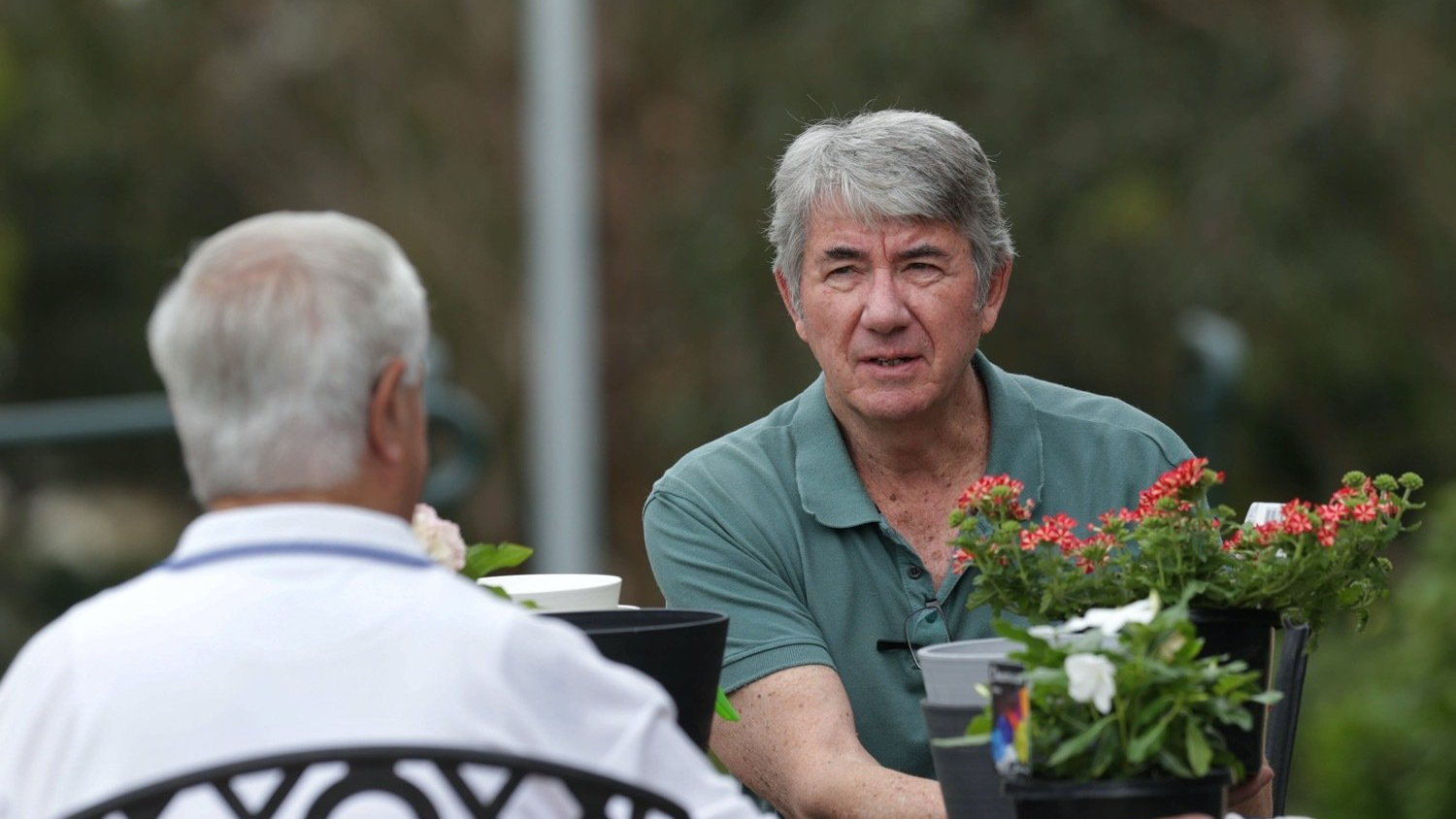A natter could change a life
Tips to help you ask, "are you OK?"
Ageing is not without challenges – health, relocation, loss, isolation, or difficulties completing tasks that were once simple – any of these can lead to us or our older friends, family members, or neighbours becoming disconnected from community and support networks.
A simple chat can mean everything to a friend or loved one who might be struggling. Even if they seem fine, it doesn’t mean they are. Those in need of support might not always ask for it. That’s why you need to trust your instincts and if you’re worried about someone in your world, reach out and ask, “Are you OK?” Comment on the changes you’ve noticed and help them access support to stop small problems from becoming bigger issues.
We all sometimes struggle with life’s ups and downs but by making time to support someone who is doing it tough you could change, or even save, their life.
The health-promotion charity R U OK? has released resources to help senior Australians give the 'Gift of Conversation'. We’ve extracted a few tips from the campaign resources to help you lend support to the people in your world who might be struggling.
The four steps to a meaningful conversation
1. Ask R U OK?
You want your conversation to feel as comfortable and normal as possible. Pick a place (in person, on the phone, or online) where you’ll both feel comfortable. When starting the conversation, be relaxed and friendly in your approach. Let them know you’ve noticed a change and ask an open-ended question like, “You’ve seemed a bit out of sorts recently. How’s everything going?”
2. Listen
Be prepared to listen and have an open mind. Ask questions to learn more about how they feel, when they feel this way and what might help to improve the way they feel. Don’t rush or interrupt. Let them speak in their own time.
3. Encourage action
Try and encourage them to think of at least one step they could take to help them lighten the load.
You won’t always have the answers or be able to provide advice to the person. In fact, sometimes it’s better not to give advice. Some problems are too big for a friend and family member to solve and professional help might be needed.
4. Check in
Try and get their agreement to check in again with them soon: “Do you mind if I drop by again soon to see how you’re travelling?” It’s helpful to follow up in a few days to see how they’re doing. This reinforces that you genuinely care and want to help.
You can find more conversation tips and resources on the R U OK? website at www.ruok.org.au/yournattermatters
If you or someone you know needs immediate support, contact Lifeline, available 24/7, on 13 11 14 for free and confidential emotional and crisis support. You can find a directory of Australian services and supports at
www.ruok.org.au/findhelp
